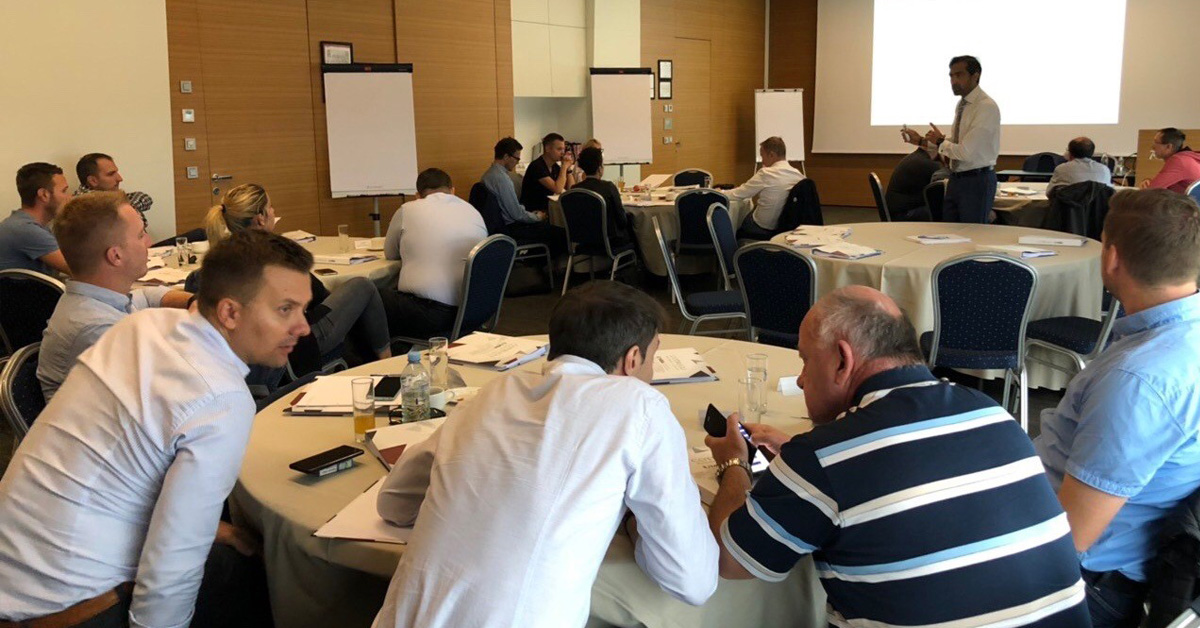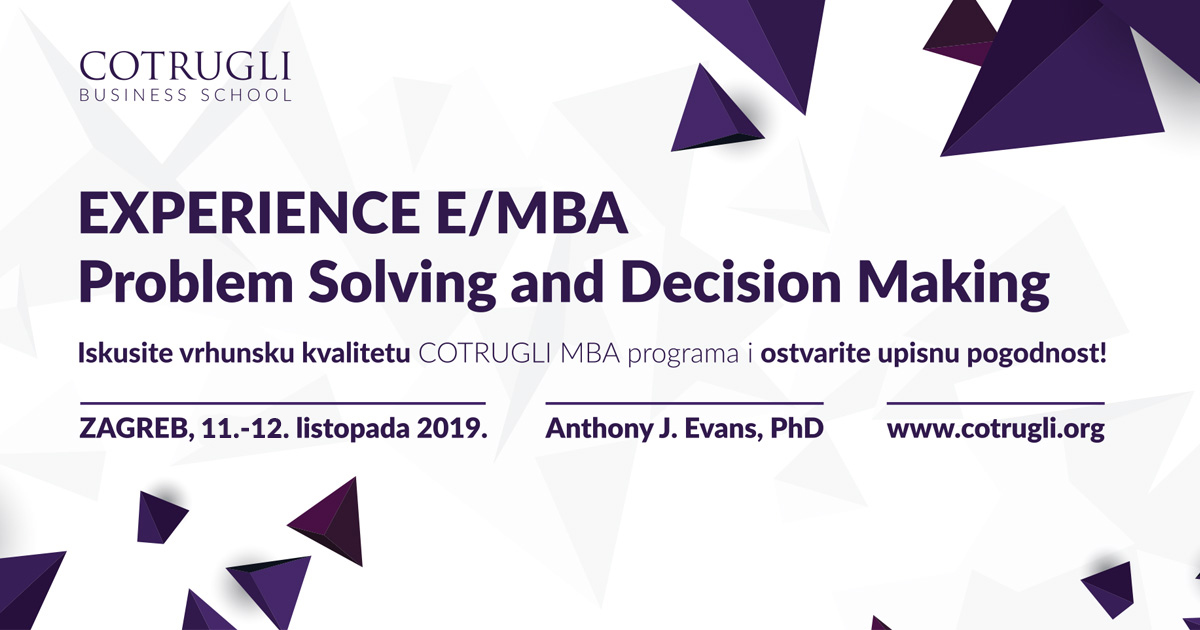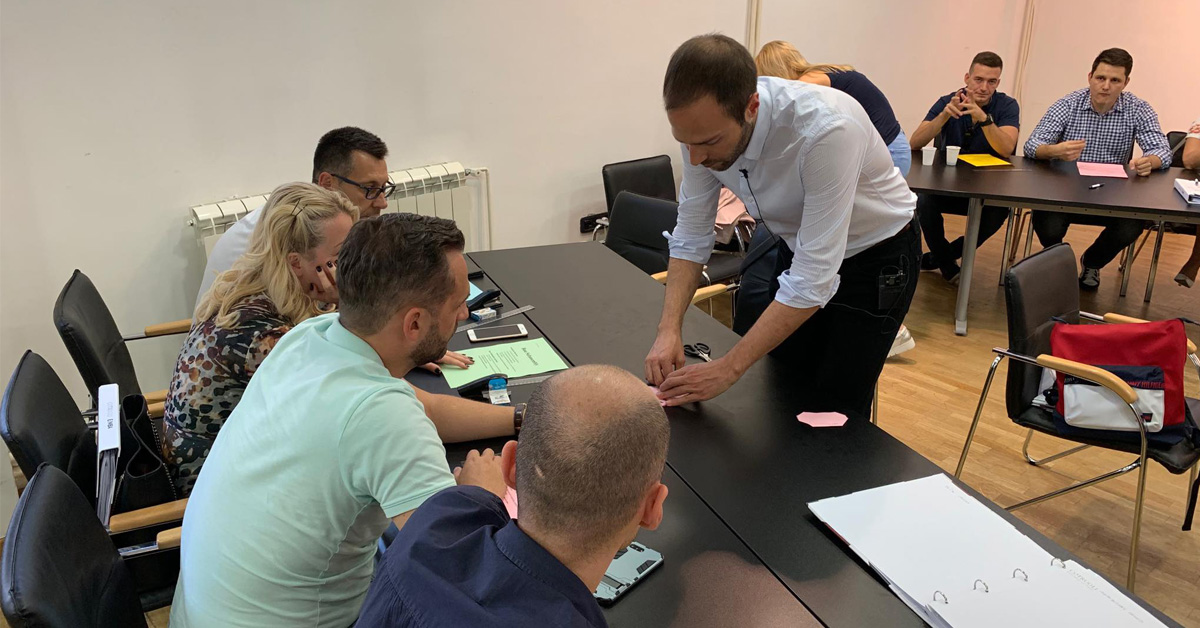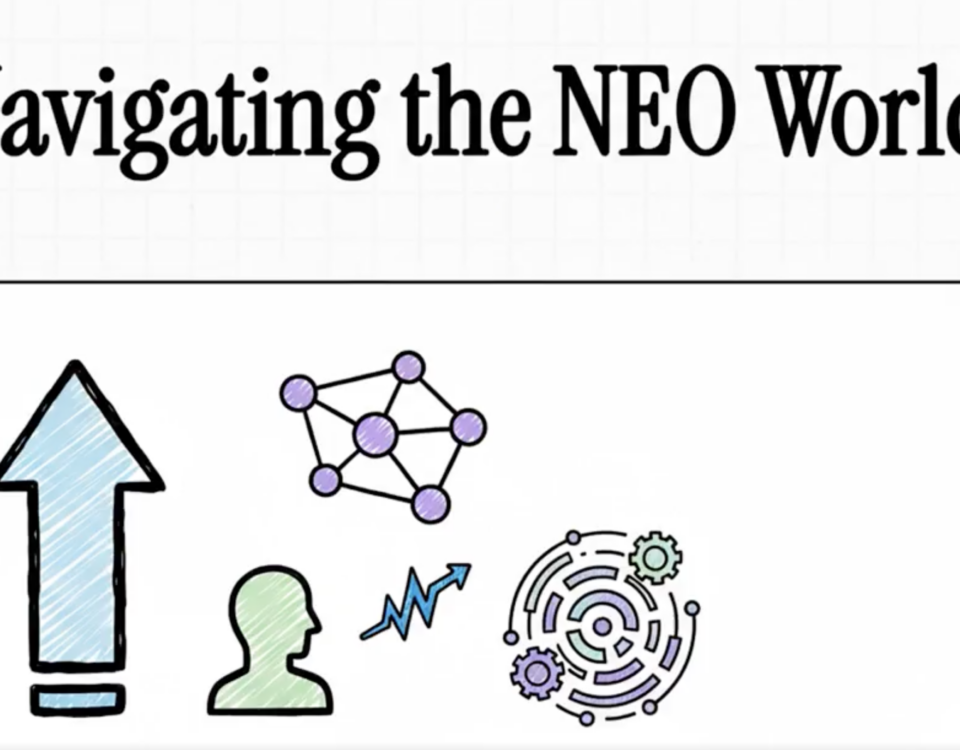
Tailor – made program for Telemach with Nicolas Kfuri was successfully held
26/09/2019
Experience EMBA program save 2.000 EUR of the tuition fee for COTRUGLI E/MBA programs
26/09/2019
COTRUGLI Operations Management MBA Bg
The EMBA 11 generation recently completed their Operations Management module in Belgrade under the guidance of Professor Dimitrios Andritsos. This experience gave participants a fresh and practical approach to understanding operational strategy and systems.
A Systemic View of Operations
Today, every organization operates as part of a larger supply chain. Different actors—such as suppliers, manufacturers, and retailers—and various functions like marketing, finance, and production must work together.
The module emphasized how mastering the relationships between these elements can significantly improve both effectiveness (achieving goals) and efficiency (doing so with minimal cost). Through case studies and simulations, students learned how to break down complex systems and identify critical levers for performance improvement.
Real-World Application and Skills Development
Beyond technical knowledge, the module focused on enhancing critical thinking, analytical reasoning, and creative problem-solving. Participants applied operations frameworks to real business cases, developing strategies tailored to specific contexts. This hands-on approach helped them gain a deeper understanding of what drives operational excellence.
Meet the Professor: Dimitrios Andritsos
Professor Andritsos is an Associate Professor of Information Systems and Operations Management at HEC Paris. He holds a Ph.D. in Management from UCLA Anderson, an MSc in Supply Chain Management from MIT, and a Master’s in Industrial Engineering from Purdue University.
His research focuses on two key areas:
- The operational effects of healthcare policy design.
- How process design drives efficiency and innovation in healthcare delivery.
He has explored topics ranging from competition between healthcare providers to quality of care, publishing in top-tier management journals and presenting at major academic conferences.
Learning Through Interaction and Teamwork
Participants described the module as one of the most engaging and practical in the program. Activities such as the house-building game, team simulations, and discussions of real-life business cases created a dynamic learning atmosphere. Students exchanged ideas, collaborated on solutions, and enjoyed meaningful peer-to-peer interaction throughout the module.




